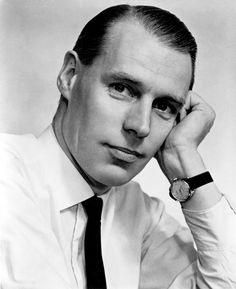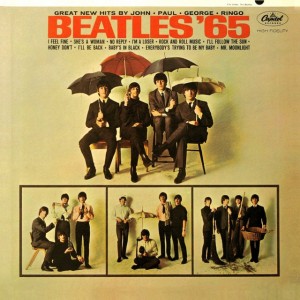There is an article on the internet that references Beatle drummer and soon to be Rock and Roll Hall of Fame solo artist Ringo Starr as having stated that the band actually did replace Paul McCartney with Billy Shears—a McCartney look-alike, after Paul died in a car crash. Since I have had some of my music friends ask me what I thought about the comments, and since I actually have a web site that ocasionally puts outs some Beatle observations, I felt that perhaps some analysis might be in order.
Now, I may not have been able to take part in many Beatle events because I was just a kid during that stretch, (I did see them live on their Ed Sullivan performances. I wrote about that in a prior blog.) I did hear the live broadcast where the “Paul Is Dead” hoax originated.
I looked up the day and it was October 12, 1969. It was a Sunday afternoon and I was lying on my bed listening to local radio station WKNR, 100.3 FM in Detroit. WABX, 99.5 FM was my favorite, but I usually switched between the two because they were the best stations out there. If I remember correctly, there wasn’t a WRIF yet, and it had a sporadic music feed from WABC in New York City. The music was usually pretty good when they played some, and I remember hearing King Crimson’s “21st Century Schizoid Man” for the first time from there.
Radio broadcasting legend, Russ Gibb, was on the air and it was about 2:30 or 3:00 PM. Nothing was happening for me that day and I figured I would listen to some music, and with some luck, take a nap. Radio back then was free form and the DJs could pretty much go wherever they wanted to. During a break from playing some music (maybe “Led Zepelin II?” “Tommy?”,), Russ took a phone call. I think he started out just talking to the guy and not broadcasting it, but probably thought it would be funny to put him on the air.
Gibb started out by humoring him about Paul being dead but then the caller started talking about clues as proof. So Russ began to pull out album covers to verify what the guy was stating. I don’t really want to recap all of the clues here—the album covers for “Abbey Road,” “Yesterday and Today,” “Revolver,” “Sgt. Pepper’s Lonely Hearts Club Band,” “Magical Mystery Tour,” etc. But it was freaky and creepy. And it was put together so well, that you had to get sucked into the conspiracy.
The conversation went on for an hour or so. I think Russ took more calls after he finished the conversation to ask others whether they agreed with the caller about Paul McCartney being dead. Honestly, there were a lot of clues and it was a compelling argument. Locally, it created a mini firestorm for both WKNR and Russ Gibb. A local TV show was put together about it with Gibb and the clues—including a tape recorder “witness” of the radio show. It created so much buzz that Paul was finally reached on his farm in Scotland to squelch the rumors. That’s pretty much where it’s stayed for the past 45 years.
So, let’s move ahead to the present time.
All of a sudden a tabloid style article rehashes the same stuff just as it started all those years ago. Ringo is quoted that the band felt guilty about the Paul “switch” so they left all of the clues where people could find them. He also is claimed to have said that he wanted to “come clean” before he died so the secret wouldn’t die with him since Paul would be the only surviving member on his death and most likely would never reveal it himself.
Considering this was supposedly on the internet for a couple of days and I hadn’t heard about it, that’s a good sign that there isn’t any credibility to the story. It’s a rehash of the so-called urban legend. I checked youtube and couldn’t find a clip of Ringo Starr saying these things. I would think that that would at least be out there, but it’s not. I presume if there is an audio clip of the statements, it would just be some masterful editing from Ringo’s prior responses to the rumor.
I do have to admit that just like I was fascinated listening to Russ Gibb’s show, I did read the whole article. I understand the fascination with this subject. I, myself, am fascinated just because it’s about The Beatles. But think about this. If Paul did die and was replaced, how many people would be in on this secret? Have you ever tried to keep a secret? Between two people? Three people? Twenty people? A hundred people? There would have to be members of the band, their inner circle, medical emergency staff, witnesses, coroner, policemen, government agencies, and on and on. Do you think all of them could have kept quiet over all of this time? I’ve never heard anyone else come out and state anything to confirm even one aspect of the rumor.
Let’s look at money. If all of these people were being kept quiet with hush money, well, when money’s involved, there’s always someone who needs more. If Ringo decided to “spill the beans” he could make a ton of money giving his version of the events not just some offhand comments.
Replacing Paul McCartney is probably the weakest link of the argument. Just think of all of the music that Paul made just with The Beatles alone after being replaced. “Helter Skelter,” “Back in the U.S.S.R.,” “Sgt. Pepper,” “Magical Mystery Tour,” “Oh, Darlin,” and that doesn’t include his post Beatle work. Paul McCartney is a unique individual of incredible talent. His vocal range and style is amazing. He still sings his songs in the same key they were written in. You just can’t find someone with his skills even if the replacement has some talent.
Having said all that, I do feel that The Beatles themselves were connecting all of these clues as either a subliminal ad campaign or at least for their own amusement. I don’t remember any one from The Beatles camp ever admitting that, but there’s just too many coincidences to happen randomly.
And one response to a clue never makes any sense to me. It’s the scene in “Magical Mystery Tour” where John Lennon, George Harrison, and Ringo Starr are all wearing red carnations. Paul McCartney is wearing a black one. Now when this movie was shown in England, it was first broadcast in black and white so maybe it wasn’t noticed at first. But all you would have to do as a follower of the band is to look through the booklet that came with the album. It’s obvious from a glance.
The official Beatle response has always been that the florist ran out of red carnations, so Paul was given a black one instead. Really??!! Did this person just not know how many Beatles there were? Really??!! How many black carnations does a florist keep on hand? That comment has never made sense to me! But draw your own conclusions. There’s certainly plenty of “clues.”
And where does that leave this rumor? As dead as the “real” Paul McCartney is supposed to be!

 As I stayed up and waited for the final results of the Michigan State Primary, I received word from someone on Facebook that George Martin had passed. I have learned over time that one has to verify whether someone has really passed, but I knew in my heart that it was all too true. And even though he hadn’t been able to do anything work related for a number of years because of deteriorating hearing, it still seemed very sad.
As I stayed up and waited for the final results of the Michigan State Primary, I received word from someone on Facebook that George Martin had passed. I have learned over time that one has to verify whether someone has really passed, but I knew in my heart that it was all too true. And even though he hadn’t been able to do anything work related for a number of years because of deteriorating hearing, it still seemed very sad.